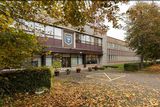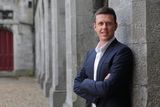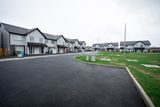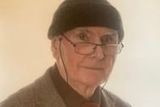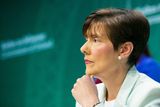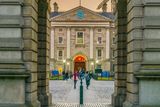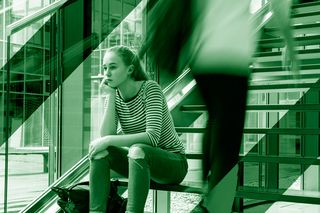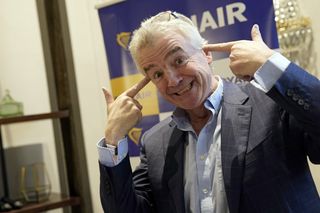Creating an autism friendly university
A new college project aims to break down barriers for students
Asperger's Syndrome: Sean Leaney is a student of chemical and pharmaceutical sciences.
The transition to college can be a challenge for all, but for those with an autism spectrum disorder (ASD) the move to a new, and more independent learning environment can be very problematic.
Children with ASD, which includes Asperger's syndrome, can be academically bright, but have difficulties in processing information, communicating and socialising. They may have limited interests and repetitive patterns of behaviour, so changes in routine and surroundings can present problems. They can be overly or under sensitive to certain sounds, touch, tastes, smells, colours and lights.
There have been big strides in the provision of supports for pupils with autism in primary and post-primary schools, but, while third-level colleges offer assistance for any student with a disability, there has been no dedicated response to meeting the needs of those with autism.
For the person with ASD, a lack of awareness and understanding on the part of others can lead to isolation, perhaps bullying - and a difficult and unsatisfactory college experience.
An initiative at Dublin City University (DCU) is about to change all that and, over the next 18 months, aims to create the first autism friendly university, both in Ireland and Europe.
DCU president Professor Brian MacCraith says they want to come up with a model that will be replicable in other colleges.
DCU research puts the prevalence of autism among Irish children at 1pc, similar to findings in the UK and US. That figure is now regarded as conservative, but even at 1pc, it means that every year about 470 students with ASD enter third level, most likely on courses in science, technology, engineering and maths (STEM).The general difficulties students with ASD encounter may be a factor in high drop out rates on some of these courses.
The project was inspired partly by a conversation between Professor MacCraith and Adam Harris, founder of AsIAm.ie, an advocacy group for people with autism. Meanwhile, Peter Brabazon, of the recruitment company Specialisterne Ireland was having parallel thoughts. Specialisterne, a branch of a Danish company exclusively involved in finding employment for people with autism, is collaborating with DCU and AsIAm on the project.
The initiative has a dual focus: changing college cultures while also helping students with ASD through another important transition - to the world of work, where their condition can often be an unwitting obstacle to getting a job.
According to Professor MacCraith, the unemployment rate among people with autism spectrum disorders is about 80pc, despite many of them having excellent qualifications. Peter Brabazon sees his role as helping students with ASD to develop the communication and socialisation skills to get through an interview and not allow their condition to distract from what they have to offer a company, while also helping employers to change their mindset. An immediate priority will be students going out on internships next spring through DCU's Intra work experience programme .
DCU is bringing a whole college approach to the project, involving staff from a range of offices including student support, disability support, Intra, Professor of Psychology, Teresa Burke, and the school of nursing and human sciences as well as the students' union.
A campus-wide consultation is running from now until May, involving students, lecturers and other staff, raising awareness and identifying the particular difficulties experienced by those with ASD, with a view to implementing changes from next September.
Adam Harris says it is about focussing on ability rather than disability and on changing attitudes: "It is about having a conversation, finding out what people are having difficulties with and about getting those who don't have autism to meet those who do, half way."
His vision of an autism-friendly campus wouldinclude quiet spaces to which people may retreat when they need to get away from noise, campus signage to aid navigation in a visual way, and training for lecturers to help them understand how people with autism process information.
Brian MacCraith is also conscious that DCU, whose Institute of Education covers teacher training at all levels, has a responsibility to ensure those graduates bring a necessary understanding to their future work.
The project is receiving €50,000 from the Dormant Accounts Fund.
Practical and social challenges
Sean Leaney (22) is a student with Asperger’s syndrome. While attending Scoil Caitriona, Glasnevin, Dublin, he was provided with a Special Needs Assistant.
When Sean began a B Sc in Chemical and Pharmaceutical Sciences in DCU, the Disability and Learning Service gave him a laptop, and introduced him to the Unilink support service, which he visited regularly during his first year.
Now in his final year, Sean found the Disability and Learning Service’s policy of interacting with students and not their parents problematic.
However, the service has also supported him through hard times.
“In my first lab of third year, I kept making mistakes and I got angry with myself. I was afraid I would break something.
“Because of that, the disability service was concerned for my safety and said I had to go see a counsellor before it could confirm I was ready to return to the lab.
“I was out of the lab for a couple of weeks but I managed to catch up and I passed third year.
“I’m glad the disability service was there to help me manage it and to get back into the labs, because I really like the practical side of my course.”
Sean says he is “really enjoying” his course, but the social side of college life has been more challenging.
“I don’t really have any friends on my course. I went to a class night out but I left almost as soon as I got there — parties are not something I like.”
He prefers spending time with the college clubs and societies, including the Tea Society, Games Society and Rock-Climbing Club.
“The societies made it a lot easier for me to make friends,” he says.
Join the Irish Independent WhatsApp channel
Stay up to date with all the latest news
